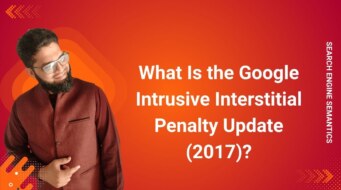What Is Keyword Proximity?
Keyword proximity is an on-page SEO concept that describes how closely related keywords appear to one another within content. It plays a critical role in how search engines interpret search intent, contextual relevance, and topical alignment, especially for multi-word queries and long-tail keywords.
Unlike outdated keyword stuffing practices, keyword proximity works alongside semantic SEO, intent modeling, and entity relationships to help search engines understand what a page is genuinely about. When applied correctly, it improves relevance without harming readability or user experience.
Keyword proximity is not a ranking trick. It is a linguistic alignment signal that helps machines and humans interpret meaning consistently.
Understanding Keyword Proximity in Modern SEO
Keyword proximity measures the distance between the words that make up a target query. The closer those words appear, particularly in the same order, the stronger the relevance signal for that query within organic search results.
This signal interacts closely with other on-page factors such as keyword prominence, keyword frequency, and broader on-page SEO structure.
For example, search engines can more confidently associate a page with a query like “best budget smartphones” when those words appear together in sequence, rather than scattered across multiple paragraphs. Proximity reduces ambiguity and strengthens query semantics.
At the same time, keyword proximity must align with semantic understanding. This understanding is influenced by latent semantic indexing keywords and continuously refined search engine algorithms that prioritize meaning over mechanical placement.
Why Keyword Proximity Matters for Search Engines?
Search engines no longer rely on exact matches alone, but keyword proximity still strengthens relevance signals, especially when paired with highly specific search queries.
Stronger Query-to-Page Relevance
When keywords appear close together, particularly in the same sequence as the query, they reinforce search engine ranking signals and improve contextual matching inside the search engine result page.
This becomes increasingly important for competitive terms, where proximity helps distinguish relevance beyond backlinks or domain authority.
Better Semantic Interpretation
Keyword proximity supports semantic clarity by helping algorithms understand how terms relate to one another, not just that they exist on the page. This works in harmony with entity-based SEO and improves topical cohesion across related concepts.
When combined with topic clusters and structured internal relationships, proximity strengthens how a site communicates meaning across pages.
Improved User Experience Signals
Natural keyword grouping improves readability and comprehension, which directly affects user engagement, dwell time, and reduces bounce rate. These behavioral metrics reinforce content quality and align with Google’s Helpful Content Update principles.
Keyword Proximity vs Related SEO Concepts
Keyword proximity is often confused with other keyword metrics. Understanding the difference is essential for precise optimization.
| SEO Concept | What It Measures | How It Differs |
|---|---|---|
| Keyword proximity | Distance between related keywords | Focuses on closeness, not repetition |
| Keyword density | Frequency of keyword usage | Counts usage, not placement |
| Keyword prominence | Visibility of keywords | Focuses on strategic locations |
| Keyword intent | Purpose behind the query | Defines why the keyword exists |
While keyword density emphasizes repetition, keyword proximity emphasizes contextual grouping. This distinction is far more aligned with modern search engine optimization.
Types of Keyword Proximity
Keyword proximity exists on a spectrum based on placement and structure rather than a binary rule.
| Proximity Type | Description | SEO Impact |
|---|---|---|
| Direct proximity | Keywords appear side by side | Strong relevance signal |
| Near proximity | Keywords separated by one or two words | Natural and effective |
| Sentence proximity | Keywords appear in the same sentence | Contextually supportive |
| Structural proximity | Keywords grouped in titles or headings | High algorithmic weight |
Structural proximity is particularly influential in page titles, HTML headings, and opening paragraphs. These are areas search engines evaluate early during indexing.
How to Optimize Keyword Proximity Correctly?
Use Complete Keyword Phrases Naturally
Including the full phrase close together improves relevance while maintaining readability. This works best when aligned with search intent types rather than forcing exact matches.
For cornerstone content, pairing proximity with primary keywords ensures clarity without triggering over-optimization.
Optimize Critical Page Elements
Keyword proximity carries more weight when used in:
Introductory paragraphs and subheadings
This placement strategy improves crawl understanding and user clarity, especially for pages targeting long-tail searches.
Balance Proximity With Semantic Coverage
Avoid forcing proximity at the expense of natural language. Instead, support the main phrase with secondary keywords and semantically related terms to strengthen topical relevance.
This approach aligns with modern content optimization practices and avoids penalties linked to keyword spam.
Keyword Proximity in Modern Search
Keyword proximity now operates inside a search ecosystem driven by semantic interpretation, entity relationships, and AI-based relevance scoring. While proximity alone no longer determines rankings, it remains an important linguistic signal that supports how search engines interpret meaning, resolve ambiguity, and evaluate contextual alignment.
Modern ranking systems rely on semantic search engines that prioritize understanding over matching. Keyword proximity contributes to this understanding by reinforcing how words relate within a sentence, paragraph, and document.
Keyword Proximity and Entity Understanding
Search engines increasingly rely on entities rather than isolated terms. Keyword proximity helps clarify how entities connect by reducing semantic distance between related concepts.
When closely related terms appear together, algorithms can more confidently assign meaning within a knowledge graph and establish entity connections.
This interaction supports:
Clear entity-based SEO signals
Reduced ambiguity during named entity recognition
Stronger topical alignment inside a defined knowledge domain
Keyword proximity acts as a linguistic anchor that helps machines confirm which entities belong together and which interpretations should be deprioritized.
Keyword Proximity and Search Intent Resolution
Intent resolution depends on how clearly a page communicates purpose. Keyword proximity supports this clarity by grouping intent-defining terms in meaningful sequences.
For example, proximity helps distinguish between informational, commercial, and transactional search intent types when similar words could imply different goals.
When proximity aligns with central search intent, search engines can map queries more accurately during query mapping and ranking evaluation.
Poor proximity, even with correct keywords, often leads to intent dilution and ranking instability.
Keyword Proximity and AI-Driven Ranking Systems
AI-driven ranking systems focus on relationships, not repetition. Proximity helps AI models interpret sentence-level meaning by reducing semantic distance between connected terms.
This is especially important in environments influenced by:
Keyword proximity supports AI interpretation by providing clear textual cues that reinforce intent, context, and entity relationships within content.
How Keyword Proximity Supports Topical Authority?
Keyword proximity contributes to topical strength when used consistently across related content. Within topic clusters, proximity helps maintain semantic cohesion between parent and child pages.
This cohesion strengthens topical authority and improves internal relevance signals that search engines use to evaluate expertise depth.
When proximity is aligned across headings, internal links, and body content, it supports topical consolidation rather than fragmenting meaning.
Keyword Proximity and Internal Architecture
Internal structure influences how proximity signals propagate across a site. Pages that lack proper internal linking often become orphan pages, weakening both proximity and authority signals.
Effective proximity usage works best when supported by:
Logical website structure
Strategic internal anchors that maintain anchor text relevance
Clear content hierarchy through headings and sections
This ensures proximity signals are reinforced, not isolated.
Common Keyword Proximity Mistakes in Modern SEO
Even experienced teams misuse proximity by applying outdated logic or ignoring user impact.
Common issues include:
Over-grouping keywords that leads to thin content
Ignoring readability and harming user engagement
Creating unnatural phrasing that triggers over-optimization signals
Misaligning proximity with evolving E-E-A-T expectations
Keyword proximity should enhance meaning. It should never distort language or degrade trust.
Measuring the Impact of Keyword Proximity
Keyword proximity is best evaluated indirectly through performance and engagement indicators rather than as a standalone metric.
Signals that reflect healthy proximity usage include:
Improved click-through rate
Longer dwell time
Stable search visibility
Reduced bounce behavior
Platforms like Google Search Console help validate whether proximity improvements align with ranking and engagement trends.
Final Thoughts on Keyword Proximity
Keyword proximity remains a precision signal in modern on-page optimization. Its value lies in how it supports semantic clarity, intent resolution, and entity understanding rather than mechanical ranking manipulation.
When integrated with:
Intent-driven keyword research
Comprehensive semantic coverage
Strong internal structure
User-focused content design
Keyword proximity becomes a quiet but powerful contributor to long-term organic performance.
Used correctly, it ensures both search engines and users interpret your content the same way. That alignment is the real objective of modern SEO
Want to Go Deeper into SEO?
Explore more from my SEO knowledge base:
▪️ SEO & Content Marketing Hub — Learn how content builds authority and visibility
▪️ Search Engine Semantics Hub — A resource on entities, meaning, and search intent
▪️ Join My SEO Academy — Step-by-step guidance for beginners to advanced learners
Whether you’re learning, growing, or scaling, you’ll find everything you need to build real SEO skills.
Feeling stuck with your SEO strategy?
If you’re unclear on next steps, I’m offering a free one-on-one audit session to help and let’s get you moving forward.
Table of Contents
Toggle


